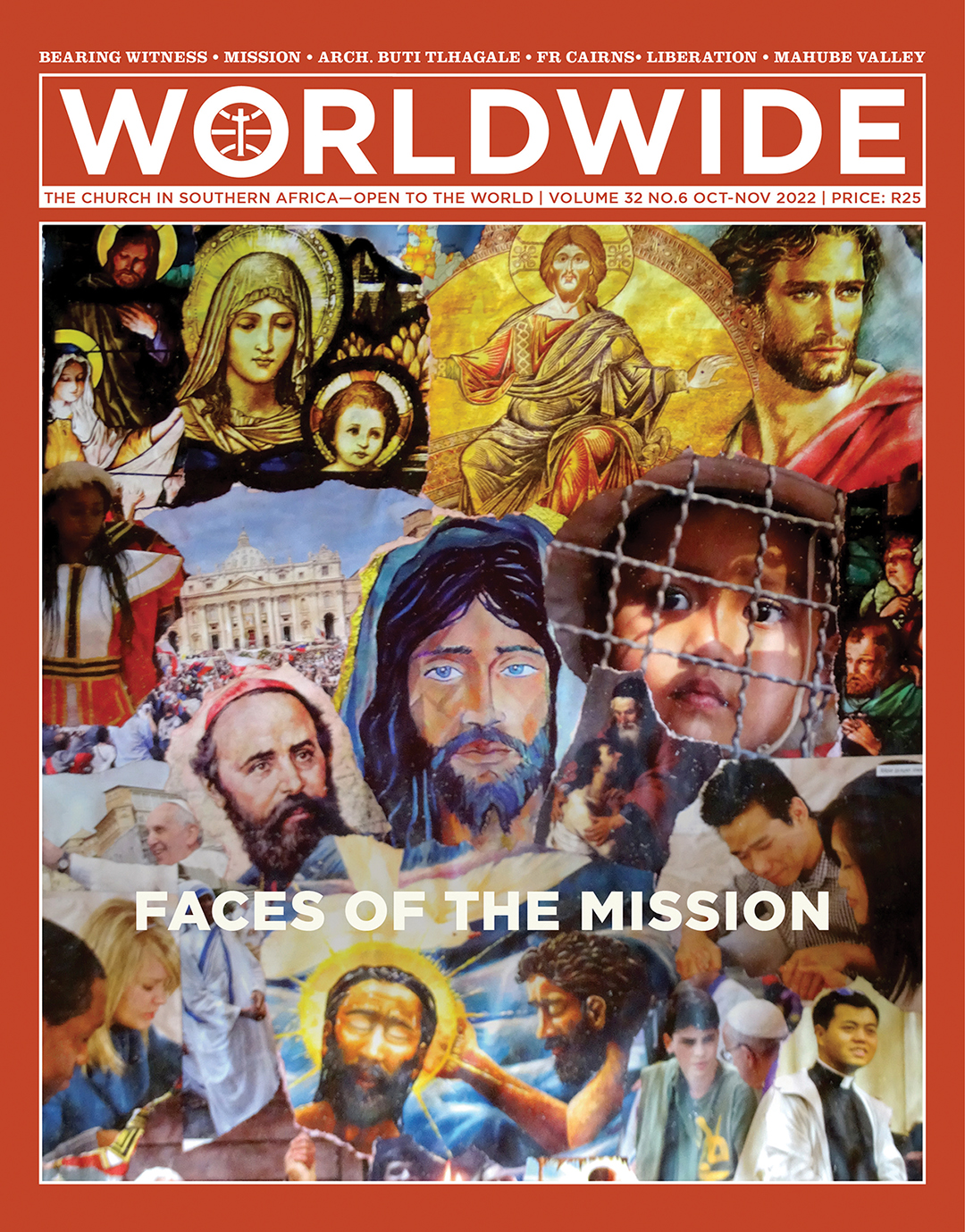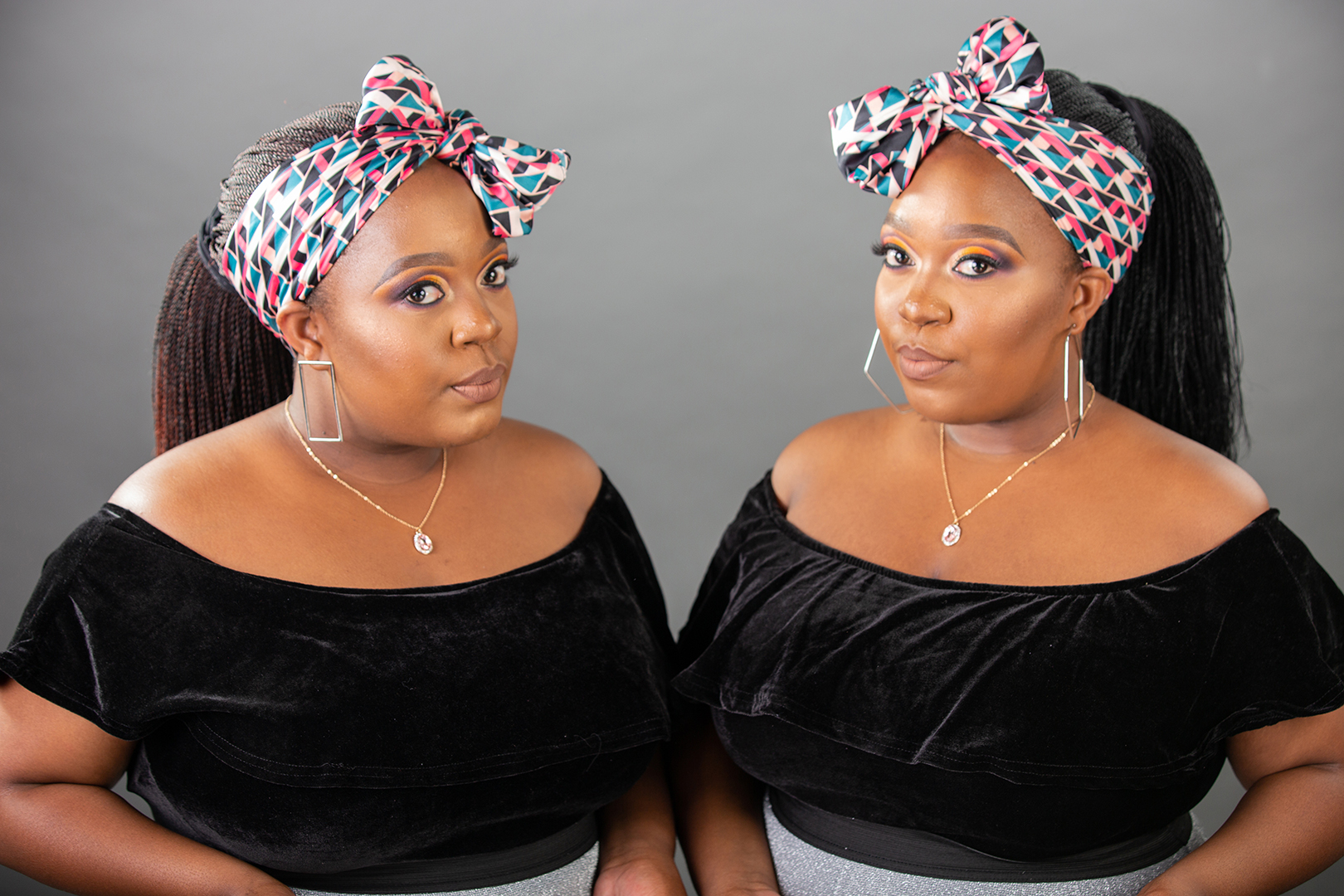FEATURES • ARCHBISHOP BUTI JOSEPH TLHAGALE
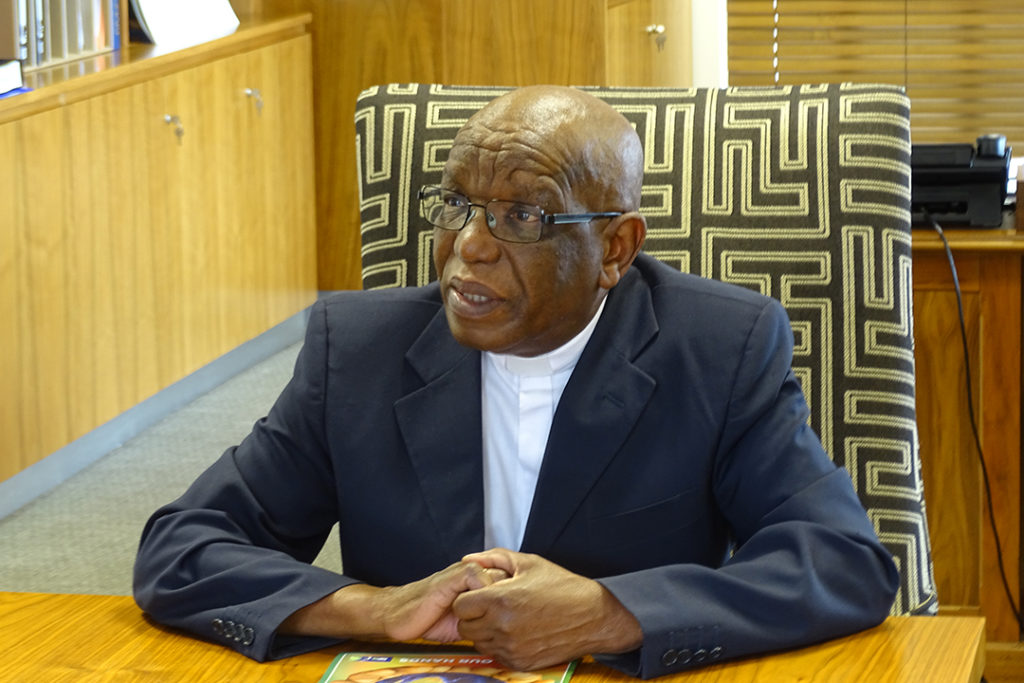
Our Church is still young
The clash between the Gospel and ancestor worship, patriarchy in the Church, and racial divide in the Christian communities are some of the crucial topics discussed in conversation with the Archbishop of the diocese of Johannesburg
BY Efrem Tresoldi MCCJ | Johannesburg
JOHANNESBURG IS a cosmopolitan metropolis where South Africans of various language groups from every corner of the country have established themselves together with immigrants from European countries and more recently with people hailing from different African nations. It is in this multicultural context that the Church is called to be a symbol of unity in diversity. Such has been the aspiration of Archbishop Buti Joseph Tlhagale, who has been leading the diocese of Johannesburg since his installation in 2003.
Racial integration
Archbishop Buti begins the conversation confessing: “I didn’t make it, I failed. I have tried in many ways to realise the dream of a greater unity among Catholics, above all through liturgical celebrations, Sunday Mass in particular. I did not succeed. For example, Catholics—whites, blacks, coloureds and Indians—who live next to each other in Johannesburg’s suburbs could come together for the celebration of Sunday Eucharist, which is in English, a language everybody understands. Instead, they do not. What is happening is that, in the same parish, whites attend the early Mass on Sunday morning or the pre-festive one the day before, while blacks take part in the mid-morning Mass or vice versa. Racial separation within the Church is also evident on other occasions”.
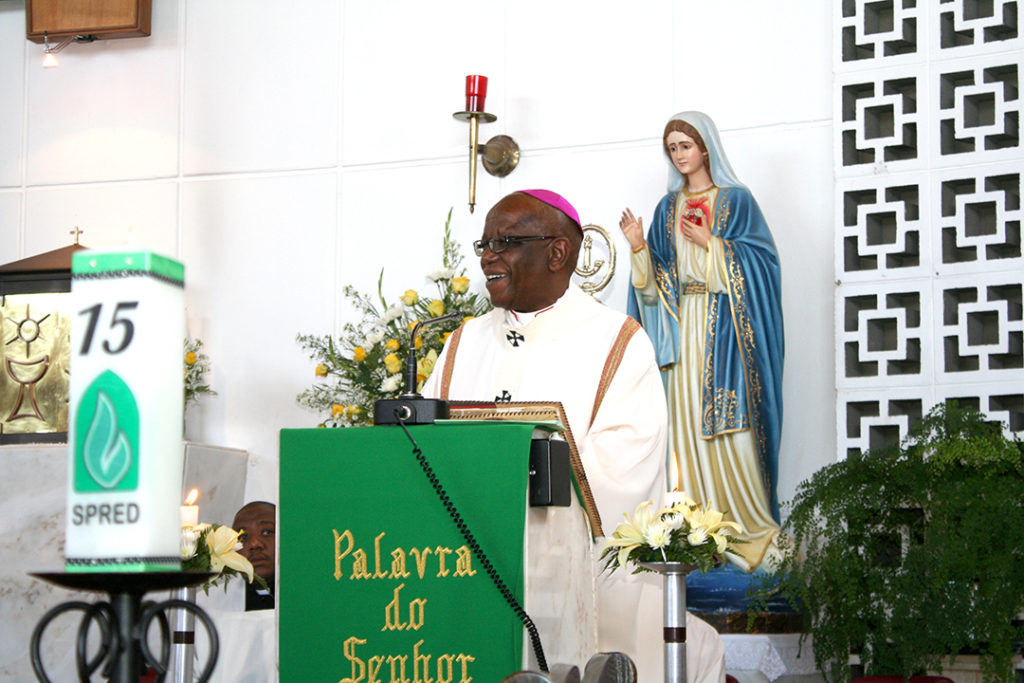
“There is a resistance on the part of white Catholics to participate in diocesan ecclesial events. In more than one case, after the invitation had been sent out to all parishes for a commemoration in a stadium or in a public place, only blacks participated in it, with the exception of a small group of whites. What happens in society is reflected in the Church. Let us take the celebration of national holidays: whites use the opportunity to go on safari, while blacks gather to take part in political rallies. They do not mix. Racial separation is the disease of South Africa. It is a long-term challenge for South Africa and a solution for it cannot be found overnight”.
Ancestors’ veneration and the Gospel
“Personally, I think that the veneration of the ancestors is totally opposed to Christianity. Some years ago, I would have said that there is a way of integrating this particular cult into Christianity. Now, on the contrary, I am convinced that the veneration of the ancestors is a recognition of a foreign power that intervenes in the life of the living. The saints too are involved in the life of the living and it is our belief that the spiritual world intervenes in the life of the living. However, the ancestors have an influence on their offspring in such a way that they literally are given a role which would correspond to God. If one maintains that the ancestors are able to heal you physically and mentally, where is Christ’s power in that context?”
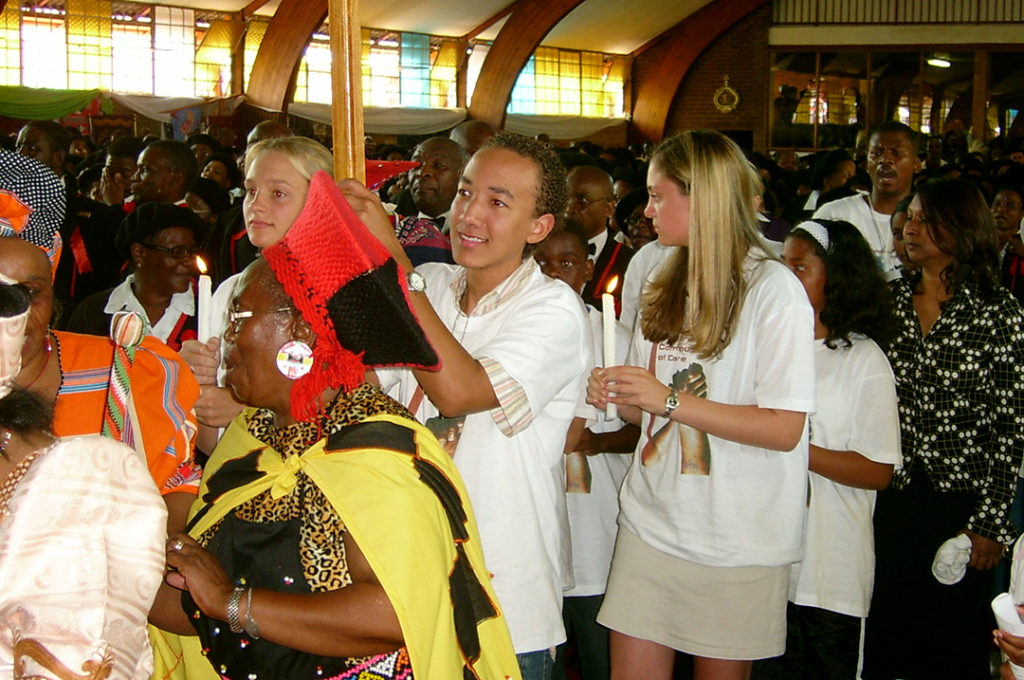
“I still think that many of the African people have a double affiliation; they have faith in the traditional belief of the ancestors, and partial belief in God, in Christianity. It does not mean that when you are catechised and you are baptised, you are a fully-fledged Christian. I have pointed out that among the catechists, there are many who have very little educational background and therefore, they cannot offer much doctrinal knowledge. And yet, we continue to baptise and accept people who come into the Church, who are only partially converted as it were, and that is a big challenge. That is why, I think, the majority of African Christians still consult traditional healers. Catholics keep consulting traditional healers. Although western medicine is available, via hospitals, clinics and doctors, they still go to these people because they have confidence in the ancestral powers”.
The Christian faith is young in South Africa; it is only a hundred and eighty years old
“It is my conviction that the ancestors are the enemies of Christ. I would not have said that some years ago and I would have fought for ancestral veneration. Not now! I am really against it. Three or four years ago, the bishops of the Southern African Conference wrote a pastoral letter addressed to priests saying that they should not be traditional healers. A committee has been appointed to investigate whether Ubungoma, the traditional healing and traditional healers are consistent with the Gospel. The committee is composed of lecturers at Saint John Vianney Seminary, and from time to time the chairperson updates the bishops about their research and outlines what they are going to do next. Hopefully, in a year or so they can come up with suggestions, and it will be very interesting, because we have never faced this challenge squarely and yet it is a major one”.
Putting down roots
There are people who maintain that Catholicism has not entered fully into South Africa. Others feel that it is still a foreign religion, something for the whites. The Archbishop agrees, and further expounds: “That is true, Catholicism has not grown roots—that is why you see that people move in and out of our Church with ease and go to new Churches, like the Pentecostal ones and to others that are grounded on traditional beliefs such as those that we call the Zionist Churches. A number of Catholics have gone there. The Christian faith is young in South Africa; it is only a hundred and eighty years old”.
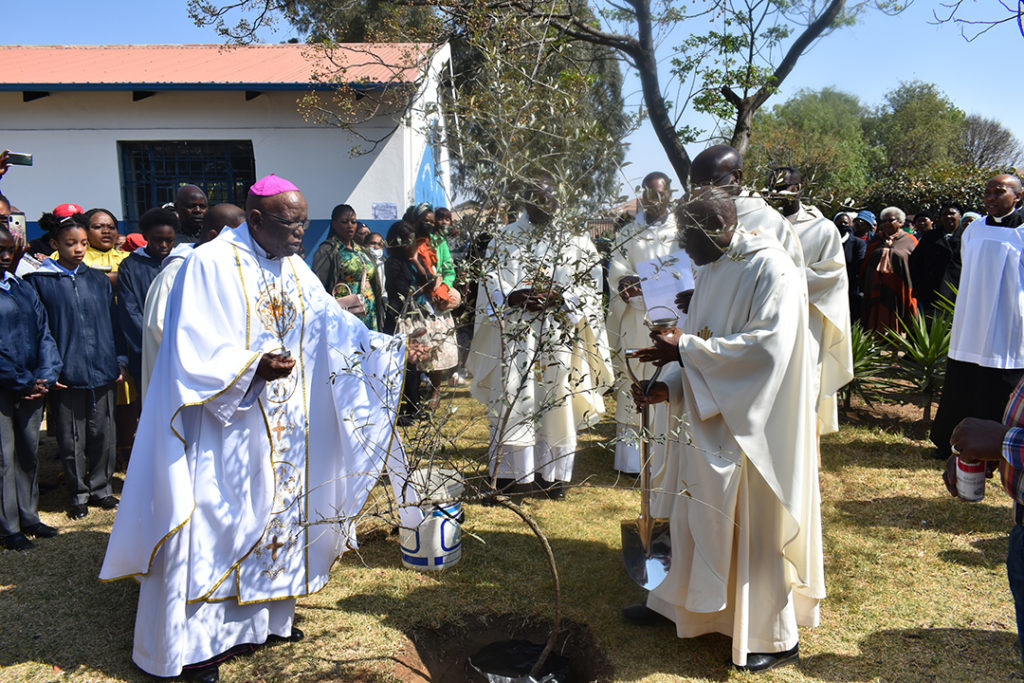
“Church denominations are on average one hundred years old. Protestant Churches arrived here around 1830 or 1840, while Catholics, very few in numbers at the time, established themselves in the Cape after 1840. Most of the parishes around the country are not even a hundred year old. In South Africa, Catholicism is very young because initially the missionaries were only serving white communities; it was only later on, in the 1940s and 1950s that they began to go to the townships and rural areas. Also, here in Johannesburg, our Church is only a hundred and thirty or forty years old, but in the townships, they are only about fifty years old. So that is why this phenomenon of believing in traditional religion is still very much in the heart of the people”.
Patriarchy in the Church
This is another stimulating topic that Archbishop Tlhagale is eager to talk about. “For quite a long time women have been complaining about patriarchy in the Church. Lately, Rome allowed women to become acolytes and lectors, but they were already reading in Church and I ask myself if that really enhances their dignity as women. The contribution and the role of women in the Church have been addressed in encyclicals and pastoral letters, but we never resolved the real challenges”.
“I think we should just sit down and talk about patriarchy; what does it mean? What has it done to women? How do we change it? Now this has nothing to do with the ordination of women—that is a different topic. We have decided consciously not to discuss the ordination of women because Rome does not want to, so we put it aside but anything else should be addressed. For instance, at the diocesan level, there are structures: the priests’ council, vicars, parish councils etc. Let us take the priests’ council for example: it is made up only of men and yet it talks about pastoral issues. I do not see why we cannot have women who are involved in the departments of catechesis, liturgy, and taking part in the priests’ council”.
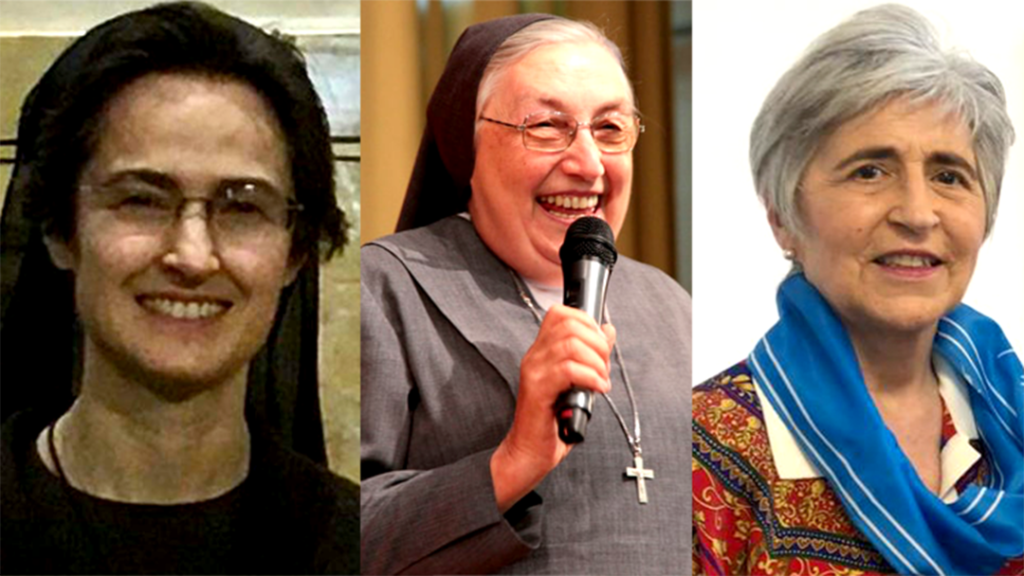
“I know the Pope has appointed a religious sister in one of the congregations of the Roman Curia (after the conversation had taken place, another religious sister and a lay woman were appointed to the Dicastery of Bishops), yet much more should be done. Even though women are not ordained, they can occupy high offices in the hierarchical structures of the Church. There is no reason why only priests should lead in those offices. Even at the diocesan level, women can run offices such as the department of education, of catechesis, of culture. We should get rid of clericalism and ask ourselves—why do we men think that we are better than women?”
“In South Africa, the ANC says that fifty percent of leadership positions should be filled by women. We should aim for the same in the Church. We should stop saying we respect women and uphold their dignity when in reality we do nothing about it. We should stop talking about it and do it, by finding ways and means to challenge patriarchy in the Church”.
Transmitting the faith
The transmission of faith from the older generation to the youth is rather problematic. It is quite common to see that young boys and girls stop going to Church after receiving the sacrament of Confirmation. Archbishop Tlhagale has some ideas on how to respond to the challenge.
Perhaps a more relaxed approach can be adopted for those who have been confirmed with a follow up programme once a month at least
“I think that after Confirmation we should have a policy of regarding the confirmed as young adults or make a programme which is less rigorous than that of the preparation for Confirmation which requires the attendance of classes every week. Perhaps a more relaxed approach can be adopted for those who have been confirmed with a follow up programme once a month at least”.
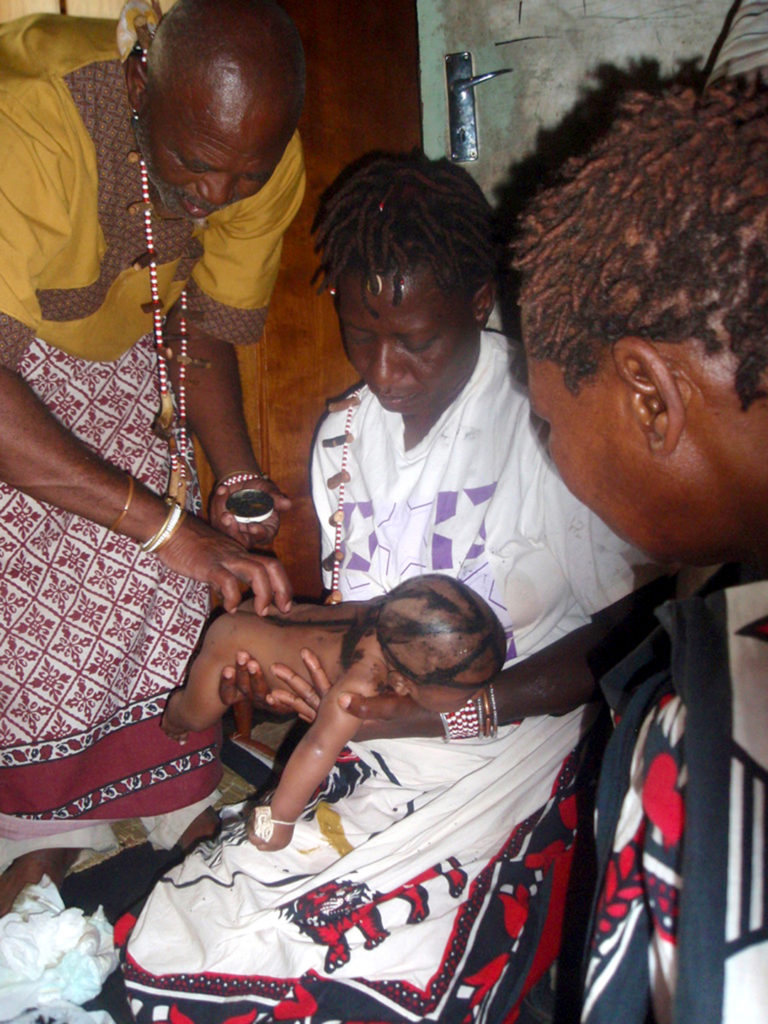
“I see that the young people, theologically speaking, remain at the level of Confirmation and never study anything beyond that. They are extremely impoverished in terms of personal faith, they do not know the contents of their faith and they do not read the Bible. They could meet once a month and come with their Bible for instance. If they are helped by someone who is knowledgeable and fascinated by the stories of the Bible, we would actually have young people interested in the Sacred Scriptures just as they are interested in classical novels. They would enjoy entering the theology of the Gospel stories—and hopefully they would grow”.
Adults’ ongoing Christian formation
“Another thing that I have not succeeded in doing is the formation of sodalities: Sacred Heart, Saint Anne, Men’s sodality, Children of Mary. They invite me once a year to have Mass with them and I used to ask them: What have you learned this year about the Church? I realised that they have not learned anything. Therefore, I suggested to them that each year the sodality takes an encyclical letter or a document of the magisterium and studies it. Surely, in each sodality you will find that there is a lawyer, a teacher, a medical doctor and a professional among them. I suggested to the members of one sodality, that someone among them summarise an encyclical or a document of the Church and then present it. I say that the sodalities should be obliged to study something. They will find it worthwhile to know about what is happening in the Church: What is the Pope saying? What are other ecclesial documents teaching? If you do that, just once or twice a year, and keep going for ten years, it would be a great success”.
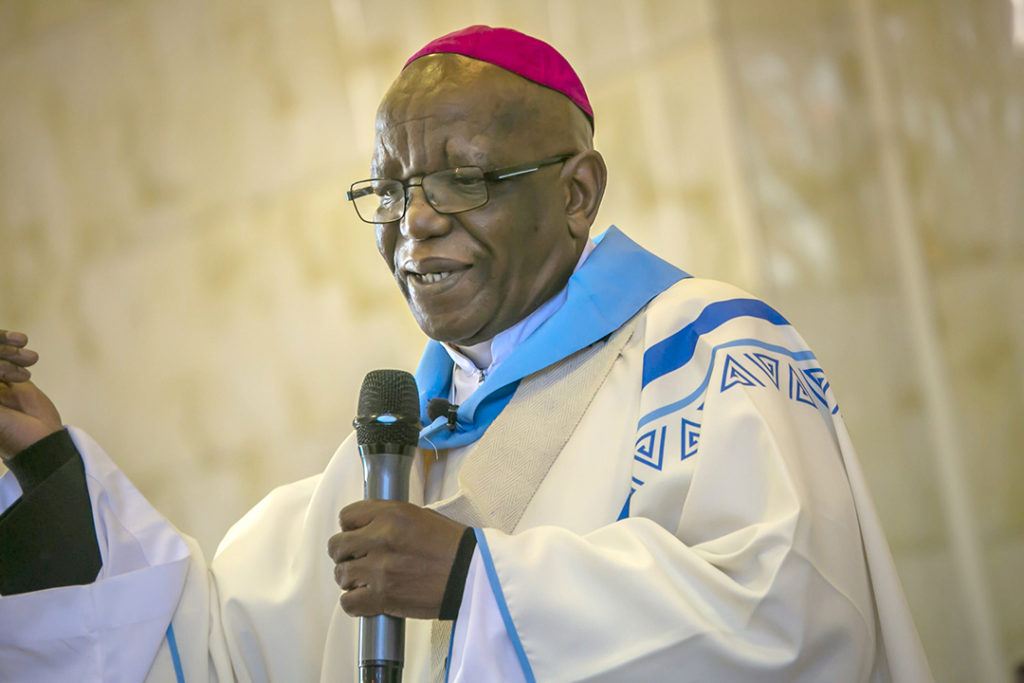
Credit: Sheldon Reddiar.
“I bought a hundred copies of Pope John II’s encyclical on Mary (Redemptoris Mater) so that when we meet, I would summarize half the book and at the next meeting we would cover the other half. I said that they must know something about Mary, some doctrinal things about Mary and come to know stories about what happened in Fatima, Lourdes, etc. What I am trying to say is that each sodality should study some document during the year, and they do not need their priest or chaplain to do that work. One of the teachers, nurses and any professional person can read and summarize it, then explain it to the others”.
Archbishop Tlhagale, who will tender his resignation on 26 December upon reaching the retirement age of 75, as the law of the Church requires, continues his mission, encouraging the Catholics to deepen their faith and become more acquainted with the rich teaching of the Church.

